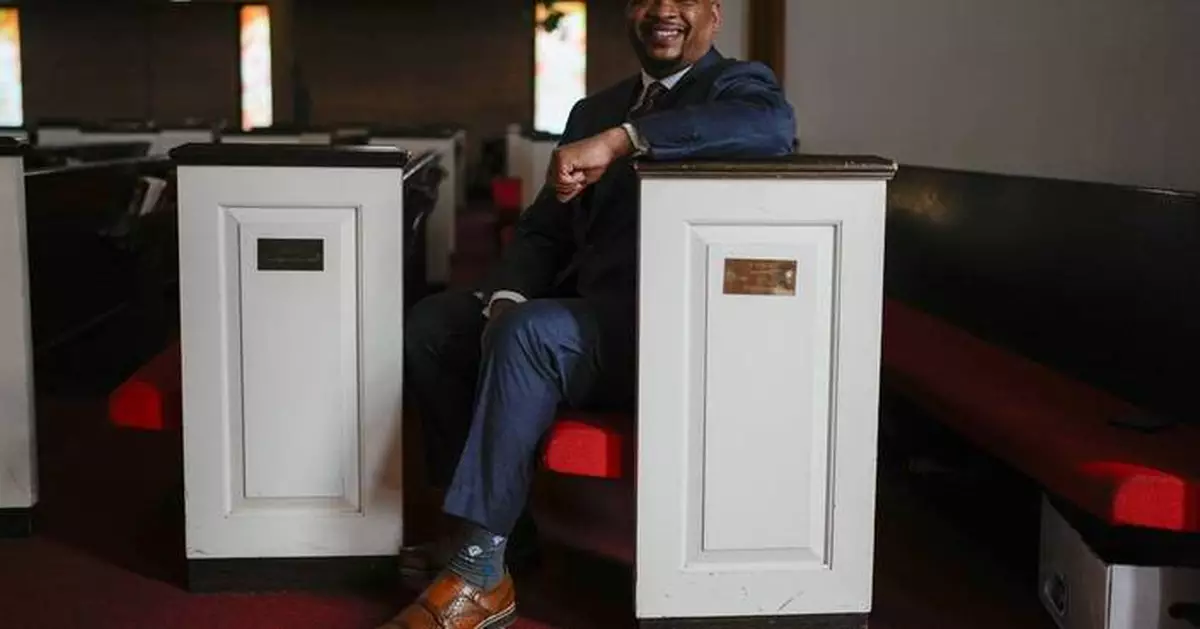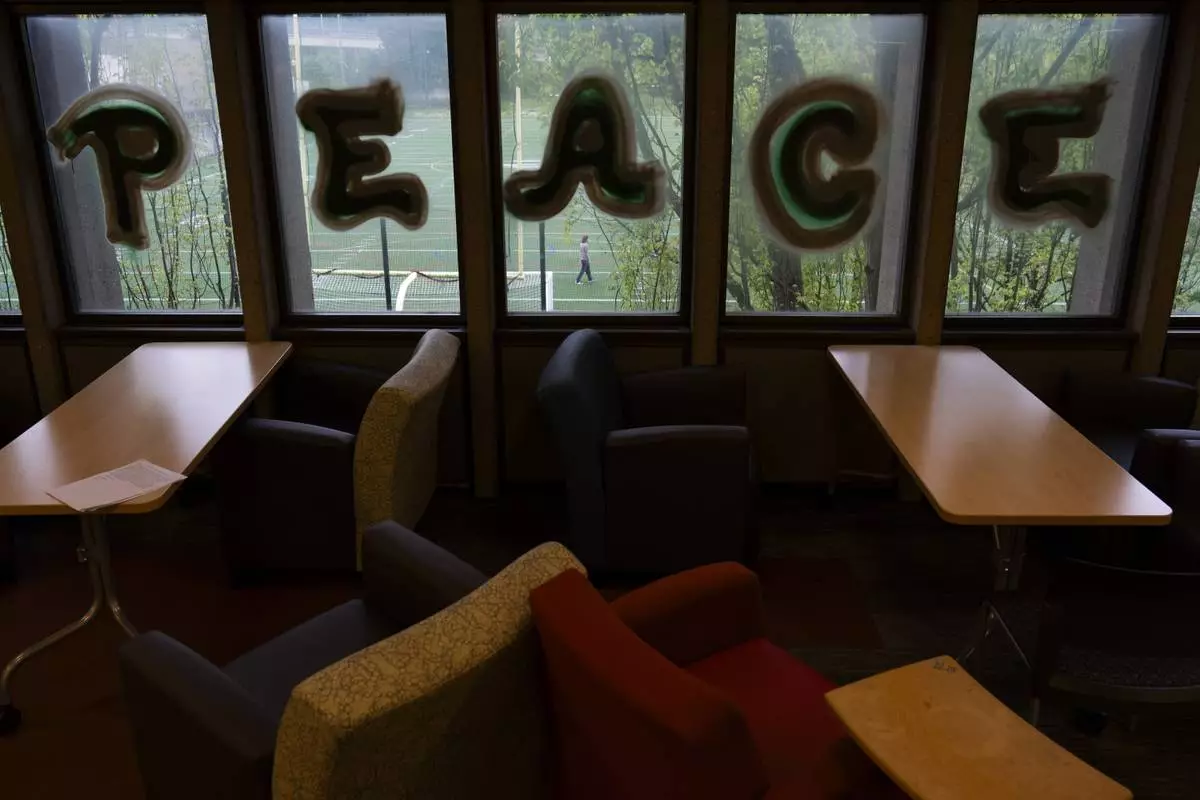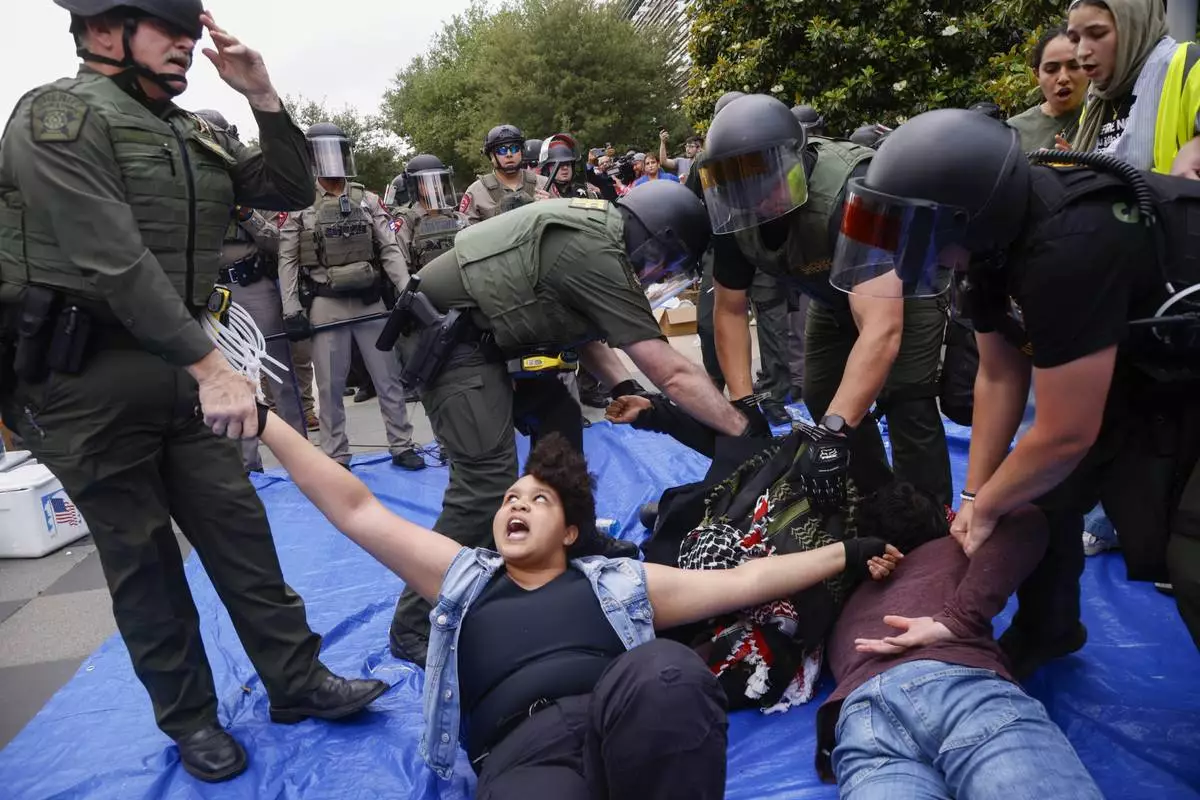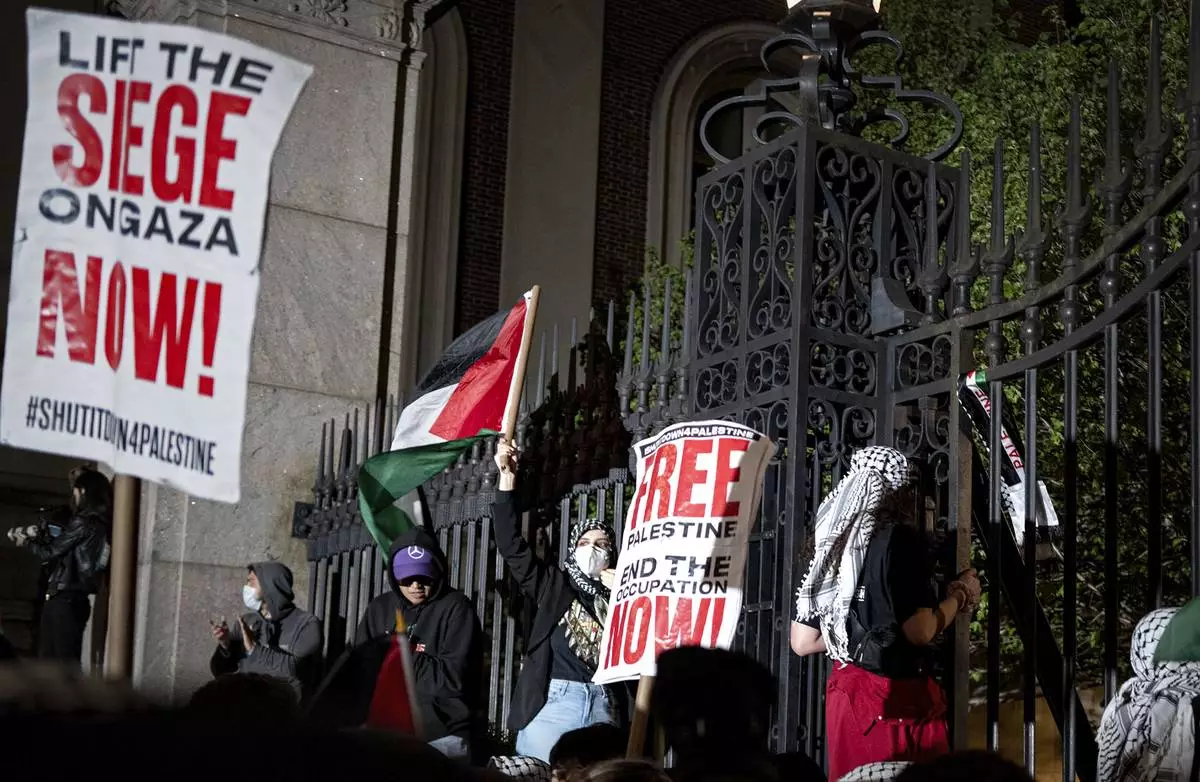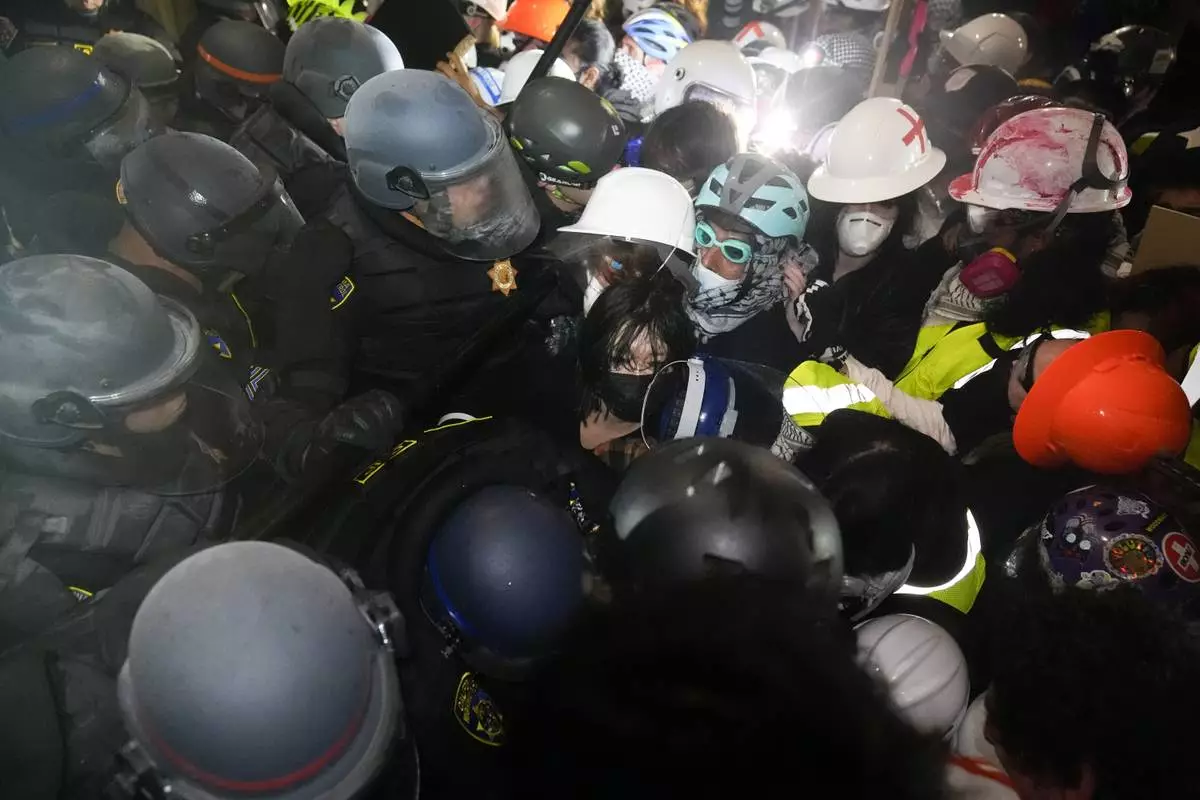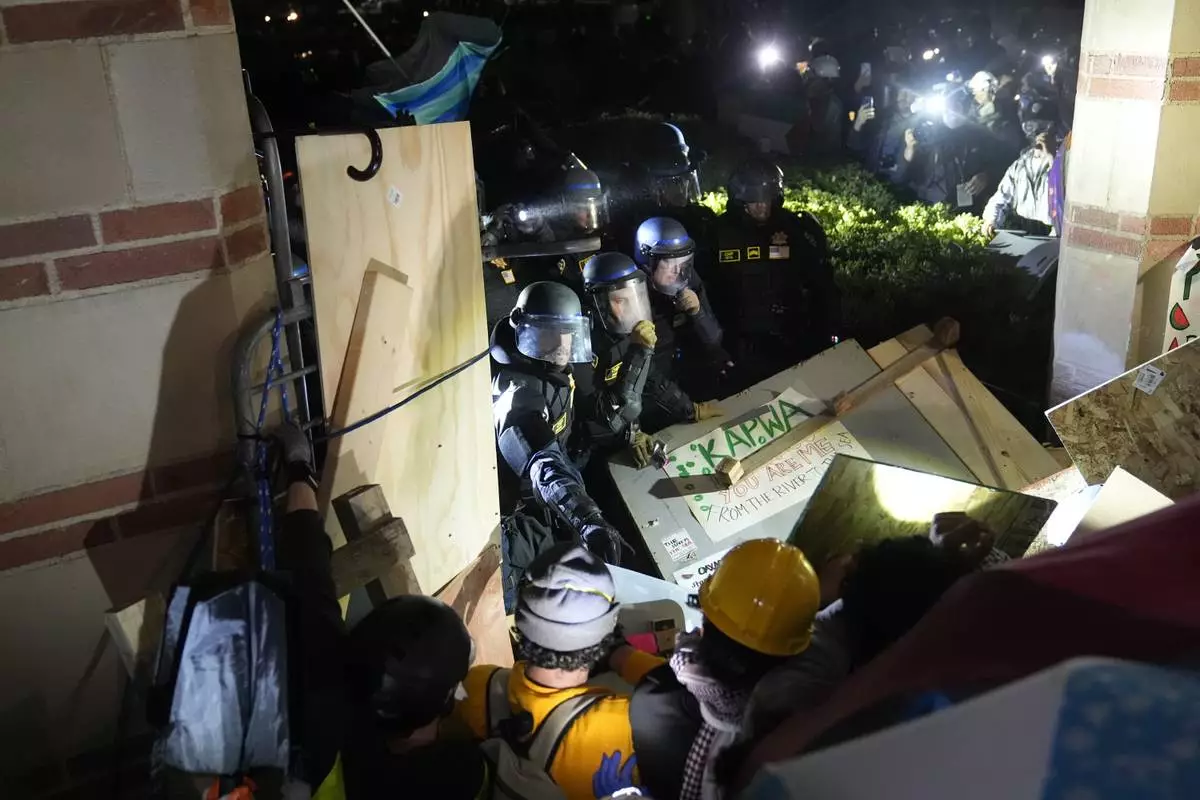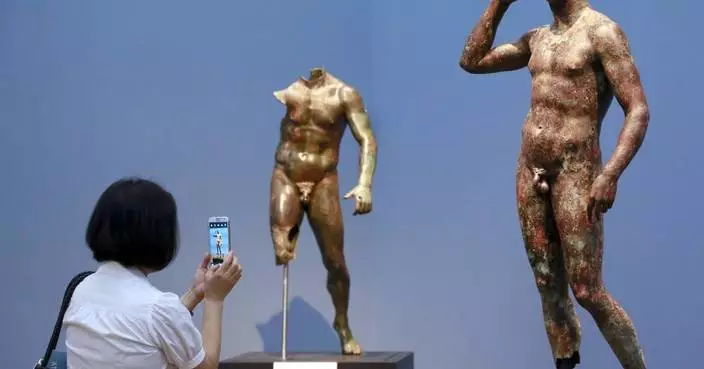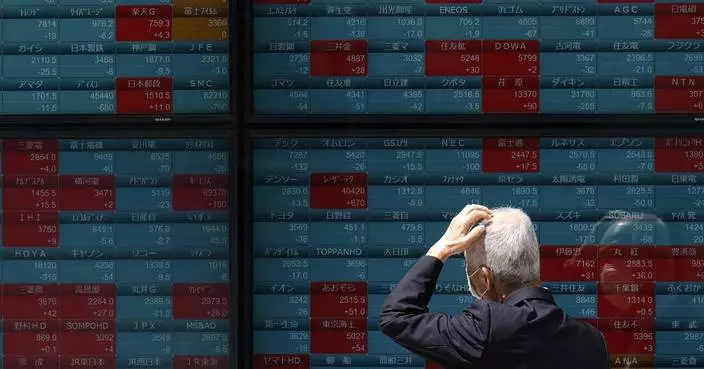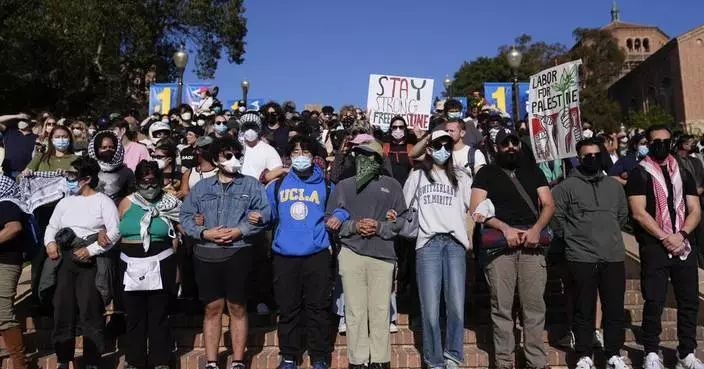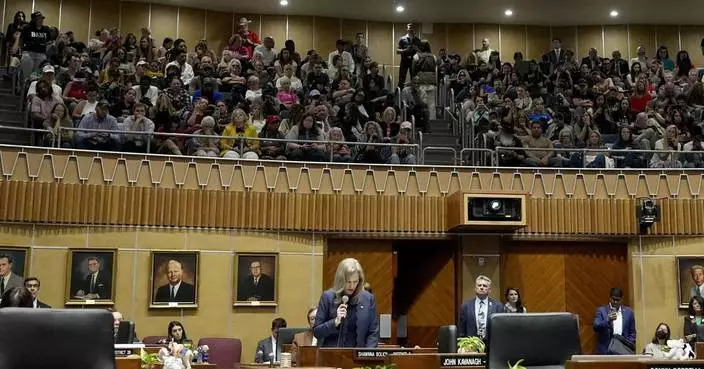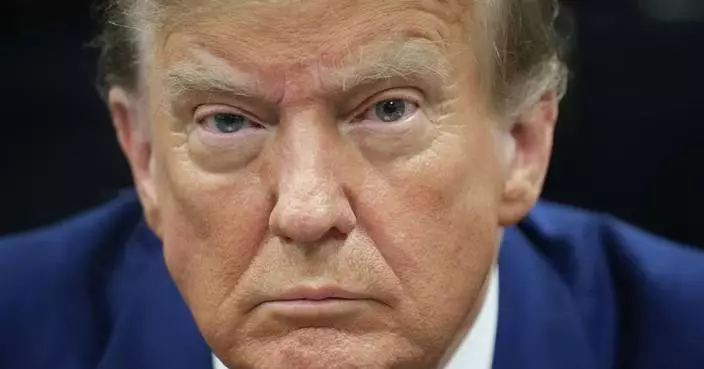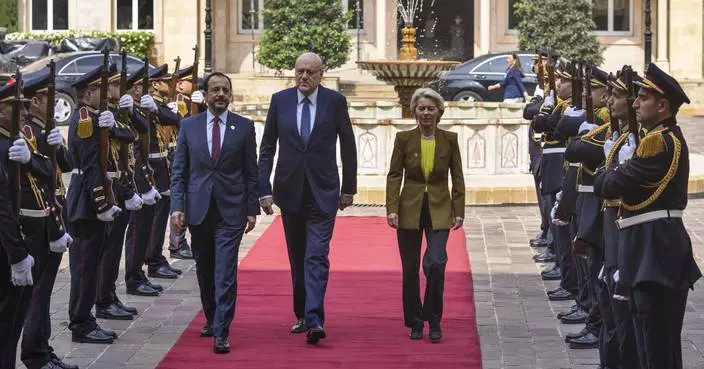CHICAGO (AP) — The closure of Wadsworth Elementary School in 2013 was a blow to residents of the majority-Black neighborhood it served, symbolizing a city indifferent to their interests.
So when the city reopened Wadsworth last year to shelter hundreds of migrants without seeking community input, it added insult to injury. Across Chicago, Black residents are frustrated that long-standing needs are not being met while the city's newly arrived are cared for with a sense of urgency, and with their tax dollars.
“Our voices are not valued nor heard,” says Genesis Young, a lifelong Chicagoan who lives near Wadsworth.
Chicago is one of several big American cities grappling with a surge of migrants. The Republican governor of Texas has been sending them by the busload to highlight his grievances with the Biden administration’s immigration policy.
To manage the influx, Chicago has already spent more than $300 million of city, state and federal funds to provide housing, health care, education and more to over 38,000 mostly South American migrants who have arrived in the city since 2022, desperate for help. The speed with which these funds were marshaled has stirred widespread resentment among Black Chicagoans. But community leaders are trying to ease racial tensions and channel the public's frustrations into agitating for the greater good.
The outcry over migrants in Chicago and other large Democrat-led cities is having wider implications in an election year: The Biden administration is now advocating a more restrictive approach to immigration in its negotiations with Republicans in Congress.
Since the Wadsworth building reopened as a shelter, Young has felt “extreme anxiety” because of the noise, loitering and around-the-clock police presence that came with it. More than anything, she and other neighbors say it is a reminder of problems that have been left unsolved for years, including high rates of crime, unemployment and homelessness.
“I definitely don’t want to seem insensitive to them and them wanting a better life. However, if you can all of a sudden come up with all these millions of dollars to address their housing, why didn’t you address the homeless issue here,” said Charlotte Jackson, the owner of a bakery and restaurant in the South Loop neighborhood.
“For so long we accepted that this is how things had to be in our communities," said Chris Jackson, who co-founded the bakery with his wife. "This migrant crisis has made many people go: ‘Wait a minute, no it doesn’t.’”
Chicago Mayor Brandon Johnson declined to comment for this story.
The city received more than $200 million from the state and federal government to help care for migrants after Johnson appealed to Illinois Gov. J.B. Pritzker and President Joe Biden. The president will be in Chicago in August to make his reelection pitch at the 2024 Democratic National Convention.
Some Black Chicagoans are protesting the placement of shelters in their neighborhoods, but others aim to turn the adversity into an opportunity.
“Chicago is a microcosm to the rest of the nation,” said the Rev. Janette C. Wilson, national executive director of the civil rights group PUSH for Excellence. Black communities have faced discrimination and underinvestment for decades and are justifiably frustrated, Wilson said. The attention the migrants are receiving is deserved, she added, but it's also a chance for cities to reflect on their responsibility to all underserved communities.
“There is a moral imperative to take care of everybody,” Wilson said.
After nearly two years of acrimony, the city has begun to curb some accommodations for migrants – which has caused its own backlash. The city last month started evicting migrants who overstayed a 60-day limit at shelters, prompting condemnation from immigrant rights groups and from residents worried about public safety.
Marlita Ingram, a school guidance counselor who lives in the South Shore neighborhood, said she is concerned about the resources being shared “equitably” between migrants and longtime residents. But she also believes “it doesn’t have to be a competition” and sympathizes with the nearly 6,000 migrant children now enrolled in Chicago's public schools.
As the potential for racial strife rises, some activists are pointing to history as a cautionary tale.
Hundreds of thousands of Black southerners moved to Chicago in the early 20th century in search of greater freedoms and economic opportunities. White Chicagoans at the time accused them of receiving disproportionate resources from the city, and in 1919 tensions boiled over.
In a surge of racist attacks in cities across the U.S. that came to be known as “Red Summer,” white residents burned large swaths of Chicago’s Black neighborhoods and killed 38 Black people, including by lynching.
“Those white folks were, like, ‘Hell no, they’re coming here, they’re taking our jobs,’'' said Richard Wallace, founder of Equity and Transformation, a majority-Black community group that co-hosted in a forum in March to improve dialogue between Black and Latino residents.
He hears echoes of that past bigotry — intentional or not — when Black Chicagoans complain about the help being given to migrants. “How did we become like the white folks who were resisting our people coming to the city of the Chicago?” he said.
Labor and immigrant rights organizers have worked for years to tamp down divisions between working class communities. But the migrant crisis has created tensions between the city’s large Mexican American community and recently arrived migrants, many of whom hail from Venezuela.
“If left unchecked, we all panic, we’re all scared, we’re going to retreat to our corners,” said Leone Jose Bicchieri, executive director of Working Family Solidarity, a majority-Hispanic labor rights group. “The truth is that this city wouldn’t work without Black and Latino people.”
Black Americans’ views on immigration and diversity are expansive. The Civil Rights Movement was instrumental in pushing the U.S. to adopt a more inclusive immigration policy.
About half of Black Americans say the United States’ diverse population makes the country strong, including 30% who say it makes the U.S. “much stronger,” according to a March poll by The Associated Press-NORC Center for Public Affairs Research.
Many leaders in Black neighborhoods in and around Chicago are trying to strike a balance between acknowledging the tensions without exacerbating them.
“Our church is divided on the migrant crisis,” said the Rev. Chauncey Brown, pastor of Second Baptist Church in Maywood, Illinois, a majority-Black suburb of Chicago where some migrants are living in shelters.
There has been a noticeable uptick of non-English speakers in the pews, many of whom have said they are migrants in need of food and other services, Brown said. Some church members cautioned him against speaking out in support of migrants or allotting more church resources to them. But he said the Bible’s teachings are clear on this issue.
“When a stranger enters your land, you are to care for them as if they are one of your own,” he said.
Matt Brown is a member of the AP’s Race and Ethnicity team. Follow him on social media.
The Associated Press receives support from several private foundations to enhance its explanatory coverage of elections and democracy. See more about AP’s democracy initiative here. The AP is solely responsible for all content.
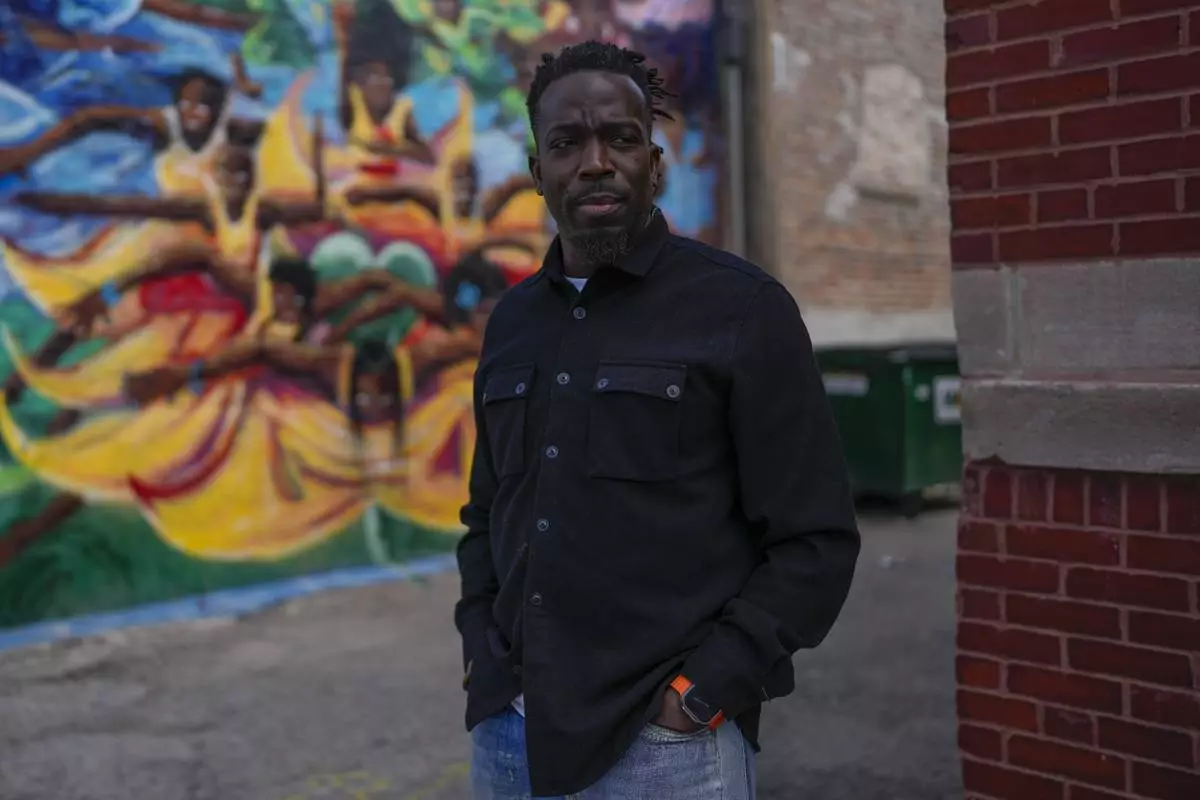
Richard Wallace, founder and director of Equity and Transformation, poses for a portrait at the Westside Justice Center, Friday, March 29, 2024, in Chicago. (AP Photo/Erin Hooley)
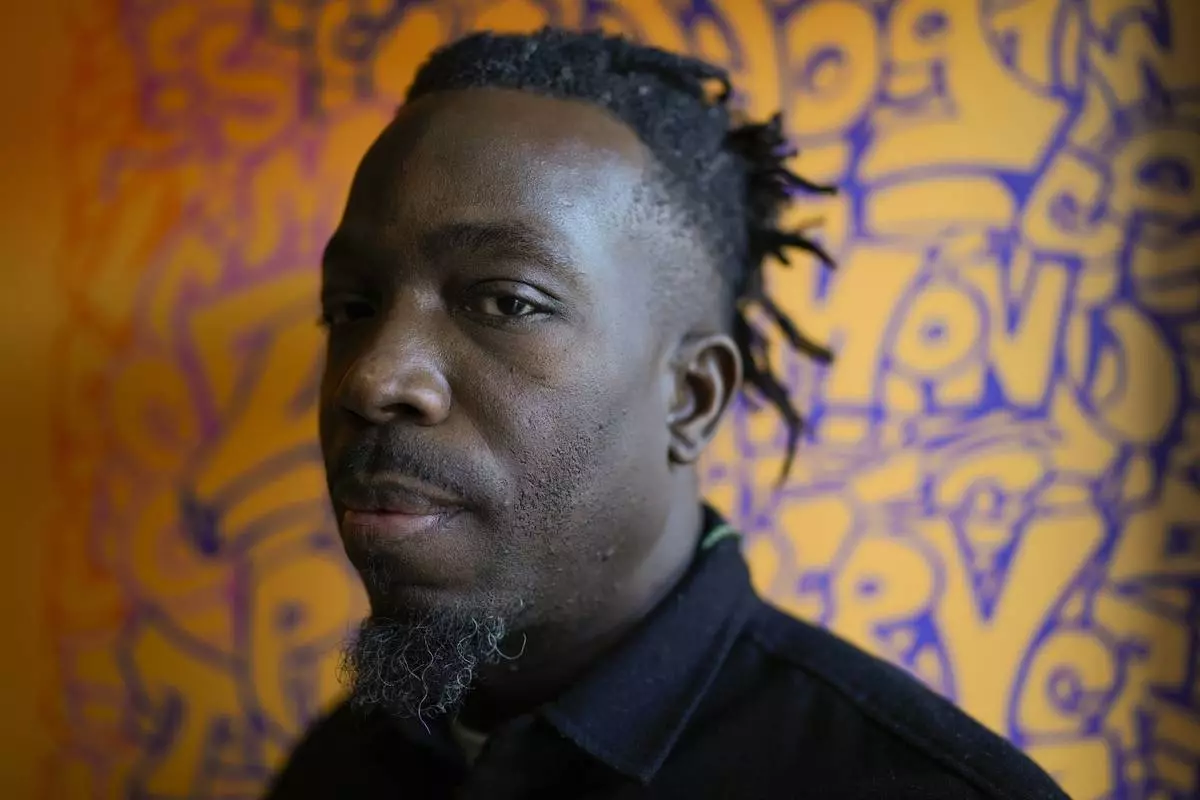
Richard Wallace, founder and director of Equity and Transformation, poses for a portrait at the Westside Justice Center, Friday, March 29, 2024, in Chicago. (AP Photo/Erin Hooley)
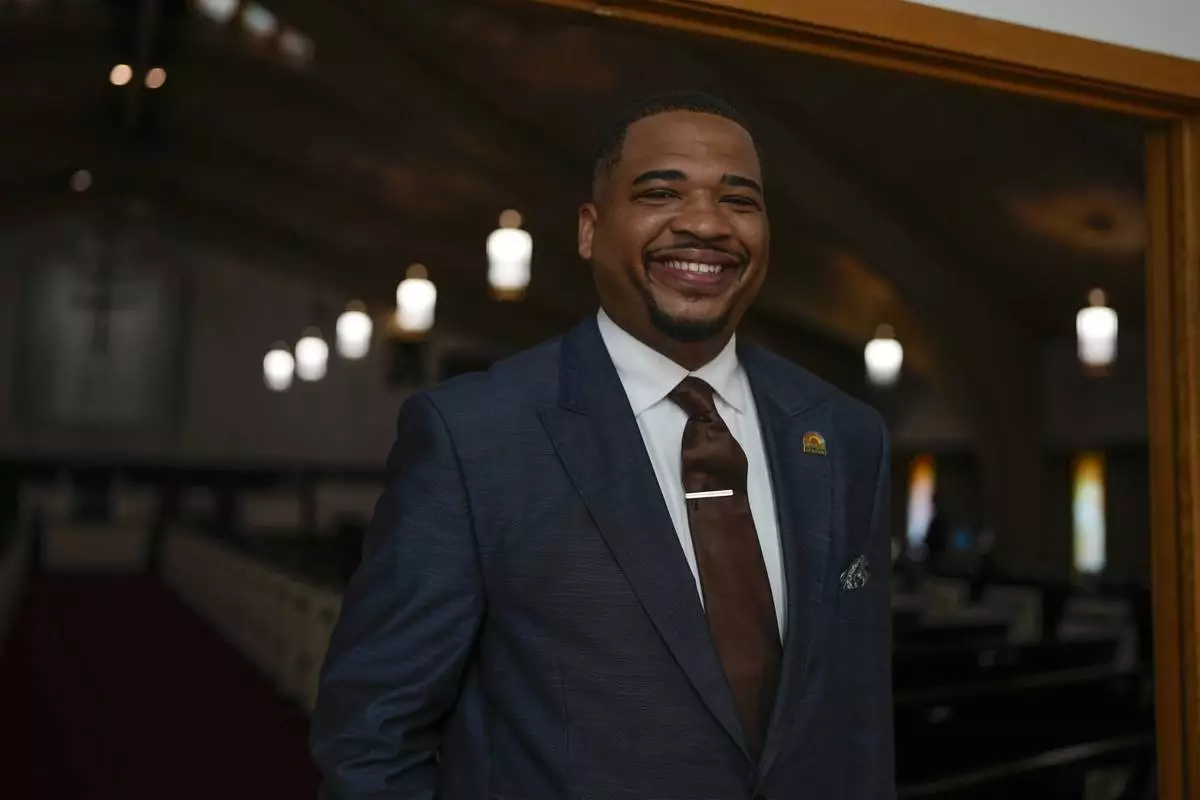
The Rev. Dr. Chauncey Brown poses for a portrait at Second Baptist Church, Sunday, April 14, 2024, in Chicago. (AP Photo/Erin Hooley)
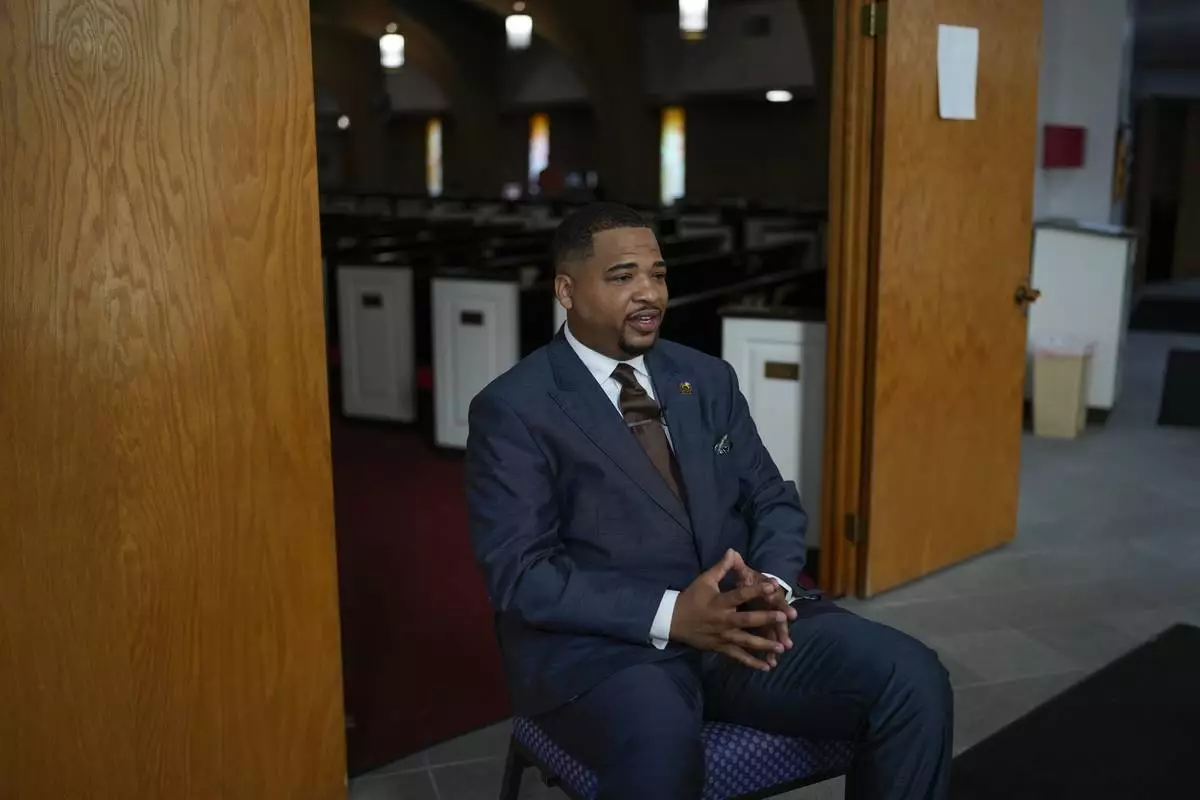
The Rev. Dr. Chauncey Brown speaks during an interview at Second Baptist Church, Sunday, April 14, 2024, in Chicago. (AP Photo/Erin Hooley)
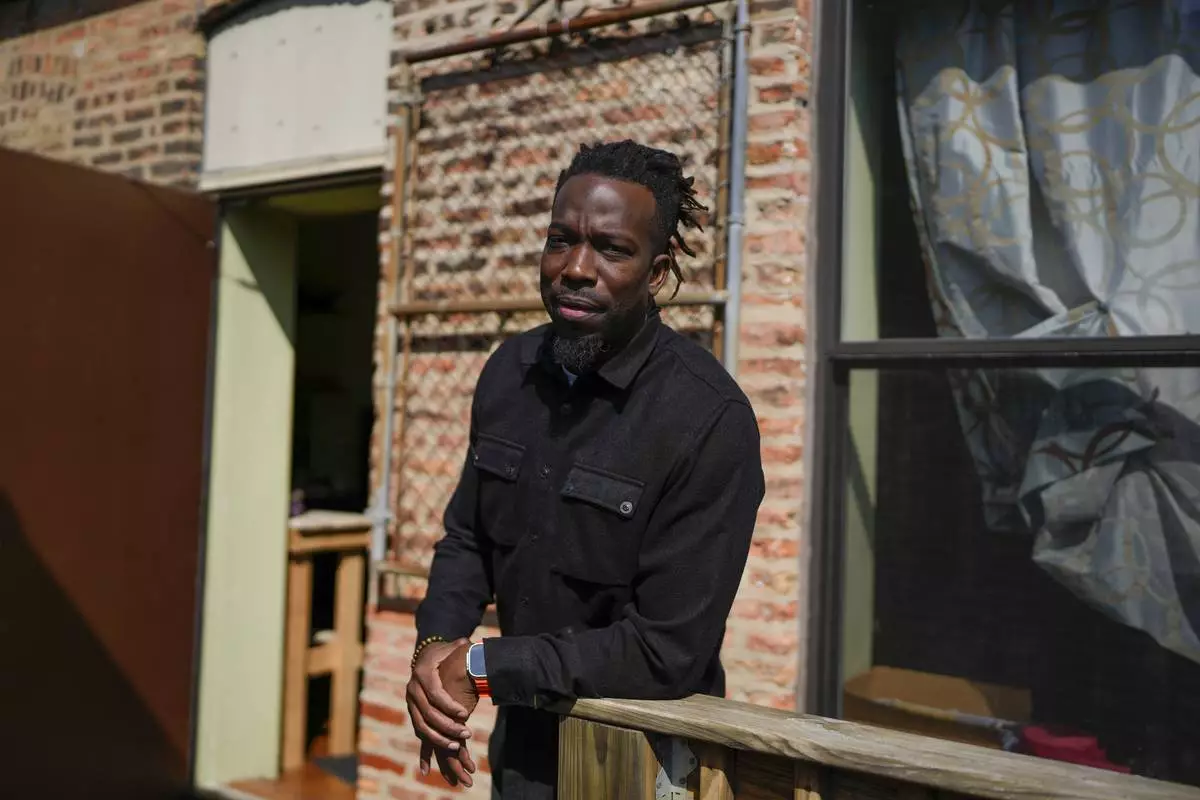
Richard Wallace, founder and director of Equity and Transformation, poses for a portrait at the Westside Justice Center, Friday, March 29, 2024, in Chicago. (AP Photo/Erin Hooley)
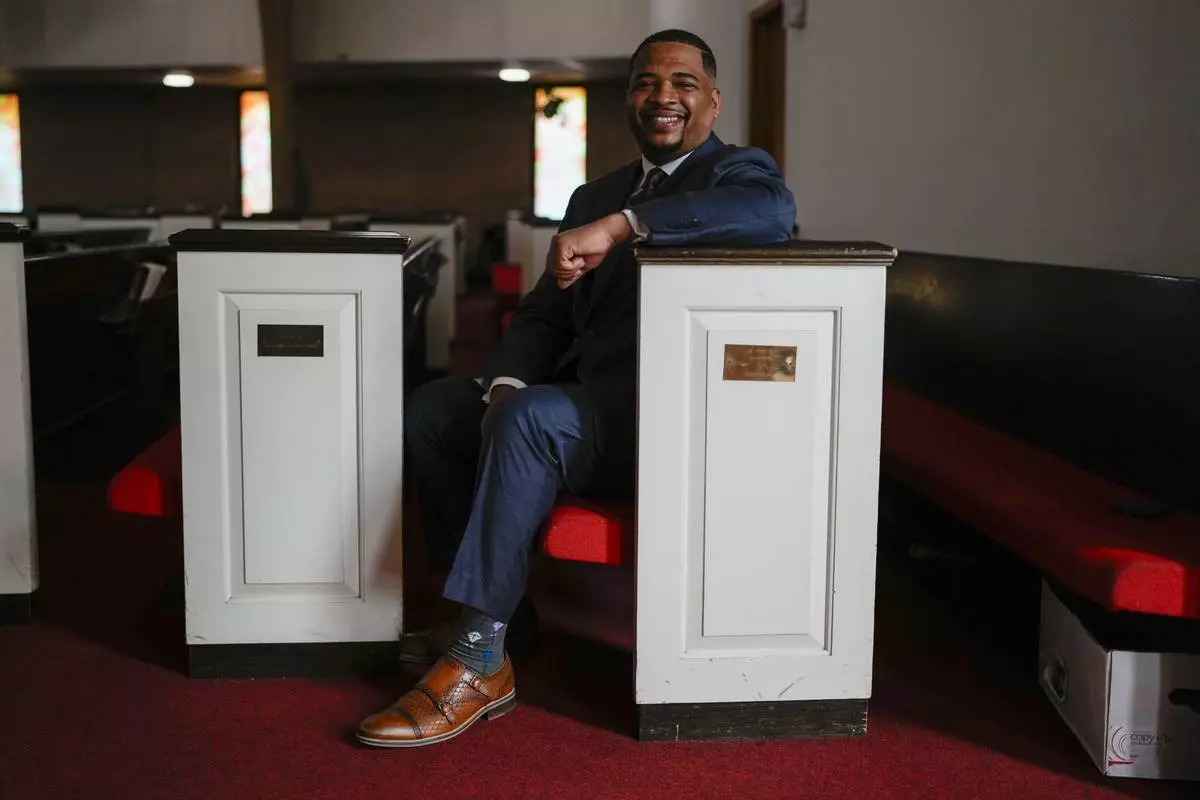
The Rev. Dr. Chauncey Brown poses for a portrait at Second Baptist Church, Sunday, April 14, 2024, in Chicago. (AP Photo/Erin Hooley)


